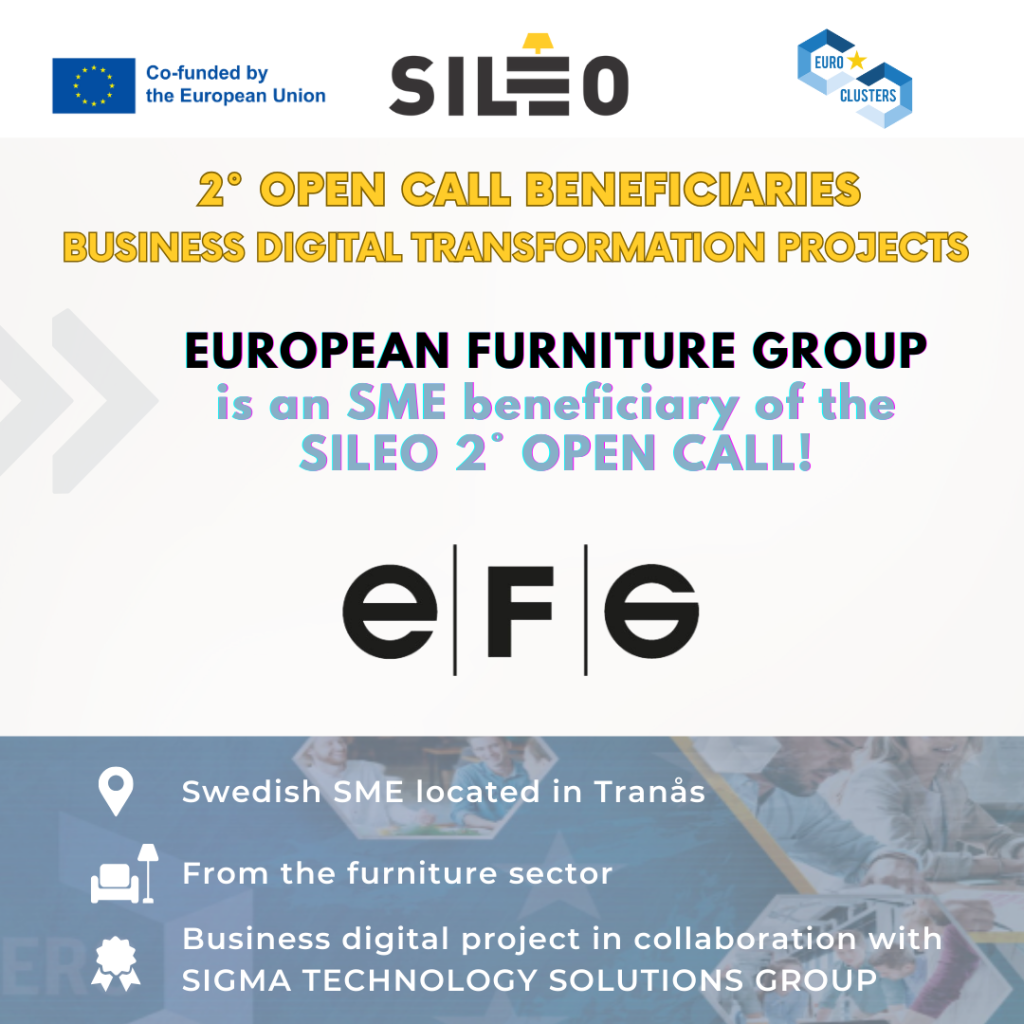
The Future of Sustainability: Digital Product Passports
EFG is actively working towards a sustainable future, and one of the upcoming steps in the green transition is to identify the best solutions for digital product passports linked to the new EU requirement ESPR (Ecodesign for Sustainable Products Regulation). Learn more about how this initiative will impact our journey toward sustainability.

For nearly 140 years, EFG has created sustainable products designed to withstand the test of time. Through collaborations with prestigious designers such as Front, Form Us With Love, and Olle Lundberg, and modular designs that allow for easy updates and repairs, EFG is at the forefront of sustainable design innovation. Moving forward, the next step is to initiate the Digital Product Passport project, in accordance with the EU’s new ESPR requirements, in collaboration with Sigma Technology and SILEO Business Digital Transformation Projects.

What does the EU’s new ESPR directive entail?
ESPR is the cornerstone of the EU Commission’s framework for more environmentally sustainable and circular products. The requirements aim to contribute to fulfilling Europe’s commitments under the Paris Agreement and the UN’s global goals for sustainable development. ESPR seeks to make sustainable products the norm in the EU’s internal market and promote sustainable consumption and production within the EU. A number of product groups have been identified as priorities for the Commission, including iron and steel, aluminum, textiles, furniture, paints, and chemicals. The regulations established under ESPR will apply to all products placed on the EU market.

What are Digital Product Passports?
The Digital Product Passport (DPP) is part of ESPR and a new standard within the EU aimed at improving traceability and transparency for products throughout their life cycle. A digital product passport contains detailed information about the product’s materials, manufacturing, usage, and recycling. Providing this information digitally facilitates informed decision-making for consumers, businesses, and authorities, promotes sustainable purchasing, and also streamlines waste management. Each product has a unique identity that can be linked to data sources with information specific to that product. The digital passports follow the products, making it easy to quickly access all sustainability data, from raw material to finished product. This helps buyers and manufacturers avoid manual data administration and ensures that all parties in the chain comply with laws, regulations, and industry standards.
Benefits of Digital Product Passports:
– Contributes to sustainability
– Increased traceability
– Greater transparency
– Consumer and product safety
– More efficient logistics flow
– Legal compliance
*The project will indirectly receive funding from the European Union’s program for the internal market, via Open Call #2 – SILEO Business Digital Transformation Projects (GA No 101074564).


EFG’s Digital Product Passports
The collaboration with SILEO and Sigma Technology aims to leverage the latest technology to enhance operational efficiency, promote sustainable practices, and improve the overall customer experience. The project will pave the way for EFG’s digital transformation, including ensuring compliance with digital product passport standards and streamlining processes to improve sustainability efforts. Through the project, EFG will establish a clear roadmap for transitioning to a business model with digital product passports. The information in these passports makes it much easier to plan for upgrades, reuse, or recycling, as easy access to data supports manufacturers, buyers, and customers in making more sustainable choices and reducing their environmental impact.